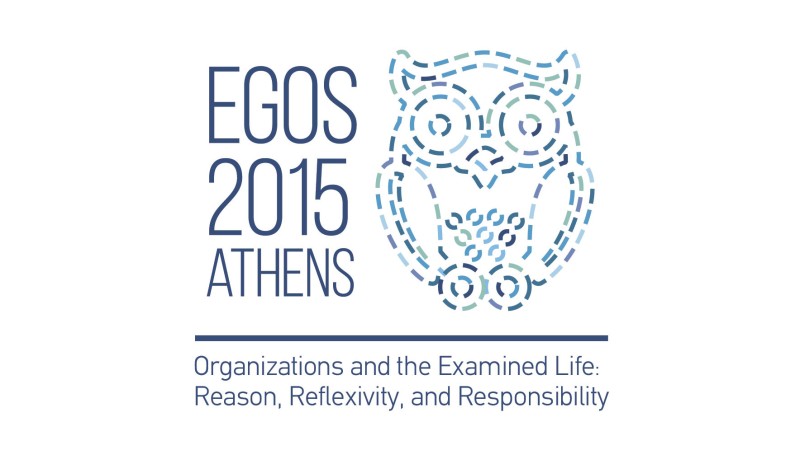Sub-theme 48: Organizations and the Imagined Life: Perspectives on Imagination, Creativity and Novelty
Call for Papers
While previously it would have been considered blasphemous to attribute a creative capacity to others than God,
today "being creative" has become a common injunction asked of everybody, even in roles where the room to maneuver is scarce.
In order for organizations to survive it is paramount that they innovate, 'produce novelty', and call upon individuals' (creative)
ability to imagine differently. Yet, the role of imagination in the production of novelty and creativity remains undertheorized
(Cornelissen, 2006; Komporozos-Athanasiou & Fotaki, in press), and imagination is often treated as construct devoid of
meaning, or worse, as misnomer for rational thinking that has little to do with the dynamic and emergent process of organizing.
Imagination has preoccupied philosophers from Aristotle to Kant, Merleau-Ponty or Castoriadis, yet it has been conspicuously
absent form organization theory debates around creativity and novelty. Today, at a time of profound economic and political
crisis in the West, the organization of political imaginations and imaginary capacities is ever more important in the pursuit
of alternatives to current dominant forms of meaning (Wright et al., 2013).
We invite contributions that explore
the role of imagination and creativity in the constitution and transformation of organizational meanings, forms and processes.
Far from being the opposite of reason and a disciplined reflexivity – as long thought of in organization studies – we embrace
imagination and creativity in their poietic potential across a variety of approaches. We call on organizational scholars'
'enacted imagination' (Weick, 1991) to unpick the creative potentiality of imagination-laden organizational practices.
We welcome approaches that consider the role of imagination in organizational and institutional change, accounting
for its role in the creation of new spaces of resistance, and evolution of physical or virtual counter-cultural organizational
communities (Dodgson et al., 2013), in creative deviance (Mainemelis, 2010), in artistic expressions of organizational resistance
(Fraiberg, 2010), in the ethical and political implications of moral imagination (Werhane, 2008), and in the fluidity, emergence
and transformation of organizational phenomena (Sandelands, 2010).
We encourage critical thinking that challenges
conceptualizations of imagination as something instrumental (Castoriadis, 1987), a resource that can be deployed at the behest
of reason – thinking that fundamentally re-examines the relationship between imagination and organizing (Komporozos-Athanasiou
& Fotaki, 2014).
We invite theoretical, methodological and empirical contributions that could include but
are not be limited to:
- The role of imagination and the imaginary in institutionalization processes
- The place of imagination in conditions of social-economic organizational crisis
- The relationship between imagination and rationality in organizing
- Imagination and the intersection between social movements, resistance and organization
- Philosophy and philosophers of 'imagination' and creativity
- Play, experimentation, rehearsal, improvisation and aesthetics
- Psychoanalytic perspectives to creativity
- Embodied imagination
- Situational factors which undermine/enhance creativity, ethics, poiesis, and moral imagination
- The role of imagination in virtual words, simulations, and alternative realities
References
- Castoriadis, C. (1987): The Imaginary Institution of Society. Cambridge: The MIT Press.
- Cornelissen, J.P. (2006): "Making sense of theory construction: Metaphor and disciplined imagination." Organization Studies, 27 (11), 1579–1597.
- Dodgson, M., Gann, D.M., & Phillips, N. (2013): "Organizational learning and the technology of foolishness: The case of virtual worlds at IBM." Organization Science, 24 (5), 1358–1376.
- Fraiberg, A.M. (2010): "'With edges of rage and despair': Anger and the poetry of office life." Journal of Management Inquiry, 19 (3), 196–207.
- Komporozos-Athanasiou, A., & Fotaki, M. (2014): "Creativity in organizations: Introducing the radical imagination of Cornelius Castoriadis." In: K. Kenny & M. Fotaki (eds.): The Psychosocial in Organization Studies: Affect at Work. London: Palgrave MacMillan.
- Komporozos-Athanasiou, A., & Fotaki, M. (in press): "A theory of imagination for organization studies using the work of Cornelius Castoriadis." Organization Studies.
- Mainemelis, C. (2010): "Stealing fire: Creative deviance in the evolution of new ideas." Academy of Management Review, 35 (4), 558–578.
- Sandelands, L. (2010): "The play of change." Journal of Organizational Change Management, 23 (1), 471–486.
- Werhane, Patricia H. (2008): "Mental models, moral imagination and system thinking in the age of globalization." Journal of Business Ethics, 78 (3), 463–474.
- Wright, C., Nyberg, D., De Cock, C., & Whiteman, G. (2013): "Future imaginings: organizing in response to climate change." Organization, 20 (5), 647–658.


